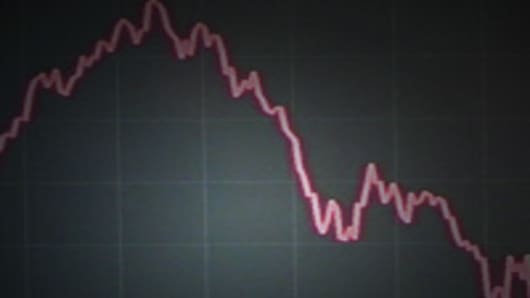Yesterday's orderly, high-volume sell-off is not being repeated today ... at least not pre-open. The big worry is that uncertainty about capital gains taxes may spark additional selling through the end of 2012.
That's why addressing the "fiscal cliff" SOO is important. If the top capital gains rate goes from 15 percent to, say, 20 percent, it is very likely to have a relatively muted effect on stocks. If it goes to 43 percent, that is a disaster. The uncertainty adds to the anxiety. Act soon.
One potential beneficiary of capital gains uncertainty: exchange-traded funds. Most ETFs never distribute capital gains. When taxes go up, tax efficiency becomes more important!
So we have prices that are 2 percent to 3 percent lower ... will there be any buying interest? Already, banks are rebounding modestly. (Read More: What Was Behind Financials' Post-Election Dive)
Elsewhere:
1) Blame it on Sandy. Or more. Get used to it. Kohl's had good numbers last night, but provided fourth-quarter guidance well below Street estimates: $2 to $2.08 a share vs. $2.16 a share. Same-store sales growth expected to be up 3 percent to 4 percent. It did not specifically blame Sandy, but expects to see more of this. Management will be conservative in the fourth quarter, partly due to Sandy, partly due to the overall economy. Macy's had a good number this week, and it, too, provided guidance that was below analysts' estimates.
2) We are back to the hall of mirrors in Europe: The euro dropped to a two-month low as the European Central Bank head Mario Draghi said that economic growth in the euro zone was expected to remain weak.
The big news in Europe was that Spain successful sold long-term debt. That's good news! But the euro dropped on it ... and Spanish bond yields went up. So, it's bad news ... it's bad news because now Spain is less likely to ask for a bailout now, and the ECB is less likely to begin buying Spanish bonds.
3) Greek parliamentary workers: Uh, wait a minute ... this bill is about us! I know you're all sick of Greece, but you've got to hear this. Greek parliamentary workers who were preparing the vote on the austerity bill walked out when they discovered that their own salaries would be cut under the austerity plans. They eventually returned, and the bill passed by a narrow margin.
In theory, it looks like pretty serious stuff. Greece will raise the retirement age from 65 to 67, cut pensions again, cut salaries for many government officials (police, soldiers, firefighters, judges), reduce the minimum wage, cut holiday pay benefits, and reduce severance pay.
Sounds pretty severe — and it is — but the problem with the Greeks is they never implement anything, even if it is voted on. They seem to lack an enforcement mechanism. Taxes, for example, have gone up, but collection is down.
There's plenty more problems. The biggest one is that, even if they approve the next tranche of aid next week (31 billion euros, or about $40 billion), the Greeks want a two-year extension to meet their fiscal targets. That is likely to require another 40 billion or 50 billion euros ($51 billion to $64 billion). There is a block, led by Finland, Austria, and the Netherlands, that is simply saying no. They don't want to fund any more extensions.
Even the International Monetary Fund has said that if there is no sustainable way to pay back the debt, it doesn't want to fund more debt.
So we are, very slowly, coming to the end game. To stay in the euro, Greece's creditors — the other countries of the euro zone, along with a bunch of banks — are going to have to take big haircuts.
That, or default.
—By CNBC's Bob Pisani
_____________________________
Bookmark CNBC Data Pages:
_____________________________
Want updates whenever a Trader Talk blog is filed? Follow me on Twitter: twitter.com/BobPisani.
Questions? Comments? tradertalk@cnbc.com



